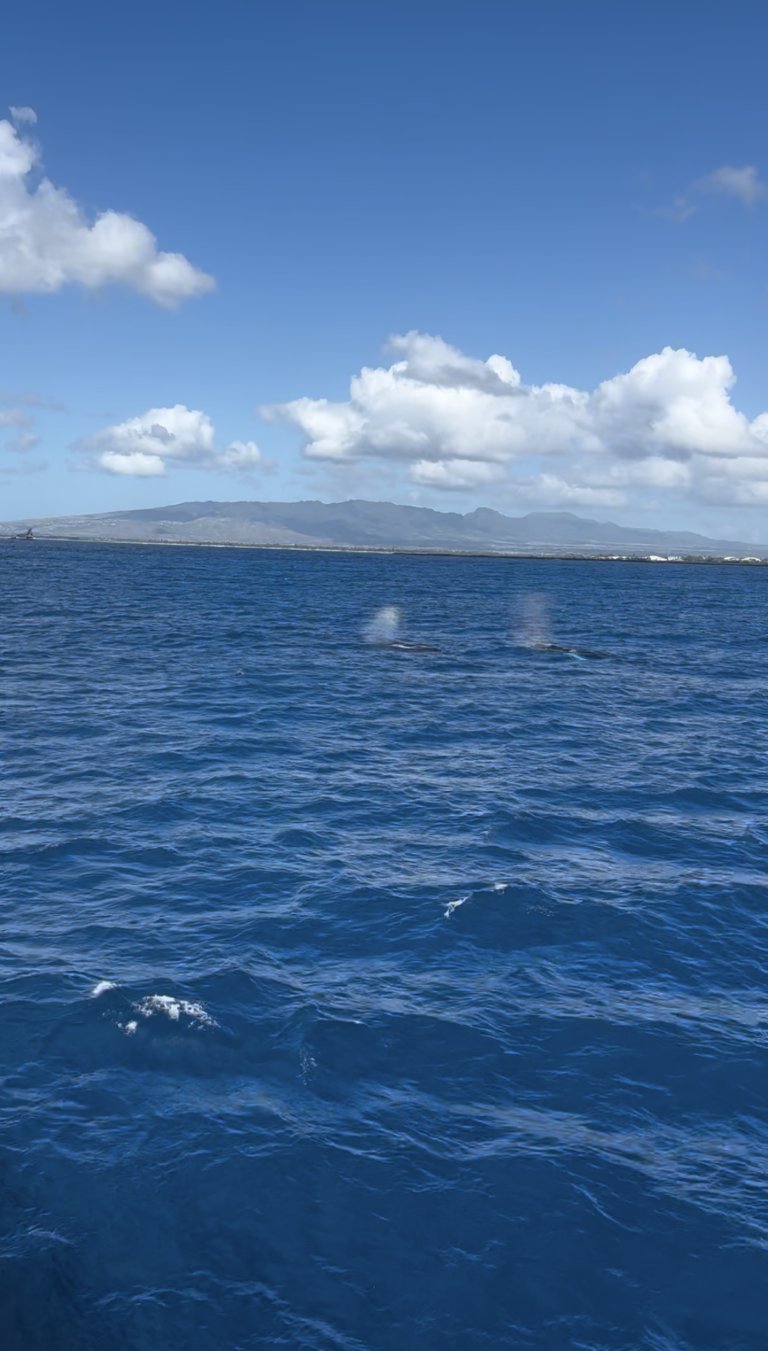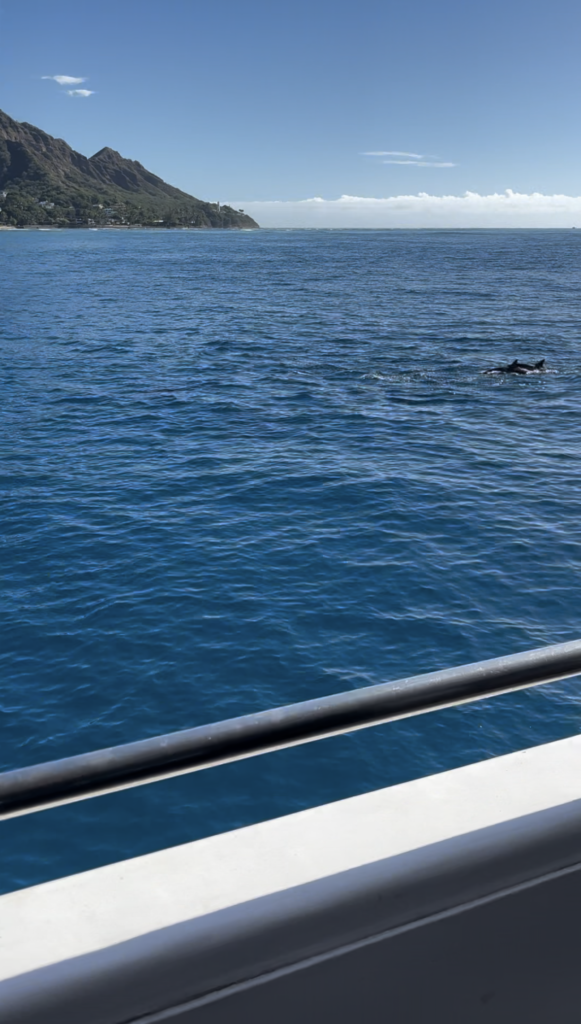This post is long overdue but I’ve really wanted to share everything I learned while working on the Star of Honolulu this whale season. First off, some background information about the humpback whales I’ve been privileged to observe and educate about! Between November and May humpback whales travel from the cold waters of Alaska to the tropical waters of Hawaii. They come to Hawaii to mate and give birth to their young. This trip spans approximately 3000 miles, which they cover in a little more than a month. During this season, I witnessed a variety of behaviors from these whales, including breaching, tail slapping, pectoral fin slapping, and spy hopping. Alongside the humpback whales I encountered a variety of seabirds, Hawaiian spinner dolphins, mālolo or flying fish, and Hawaii green sea turtles.

My primary responsibility was to teach general information about the humpback whales and any other marine life we saw, explain behaviors we observed, and answer questions. Depending on the day, I engaged and educated groups ranging from 60 to approximately 400 guests at a time. I absolutely loved the opportunity to be able to connect people with nature, hoping to foster a greater appreciation for the ocean and the animals that live there. I also loved being able to talk to the kids and see the joy on their faces when they saw the whales
This job also afforded me a behind-the-scenes view of ecotours, offering a first hand view of both its pros and the cons. First I believe that ecotours serve as an exceptional means for people to see animals in their natural habitats. While I support the conservation and educational goals of zoos and aquariums, it is much more special to be able to see some of these animals in their natural habitats. Furthermore, in the case of the whales, they can’t be seen in zoos and aquariums allowing ecotours to provide a unique opportunity for up-close encounters.
Additionally, when done correctly, ecotours can serve as an exceptional education tool by teaching about the habitats and animals guests encounter and inspiring habitat preservation and animal conservation. Most importantly, by observing and learning about the animals individuals gain a greater appreciation for them. I personally witnessed this and as I mentioned it was the highlight of my job!
The biggest thing I felt was missing from my experience was an emphasis on conservation and protection. The script provided to me that included the welcome address, safety speech, and points of discussion during the cruise, lacked any information about conservation or actional
steps to help the whales or our oceans. Also the cruise itself felt short in terms of eco-friendliness as there were tons of single use plastics and individually packaged food items. While I do understand the rationale behind this, I didn’t feel that it gave the right image for an ecotour. I personally tried to add information about threats to the whales and actionable steps to protect them in hopes of combatting this. I also appreciated the captains
discussing safe observation practices to the guests and subsequently adhering to them. During the cruise, however, I observed numerous tour boats failing to practice proper observation protocols. I witnessed instances of boats crowding the whales and, alarmingly, instances of both tour and recreational vessels nearly running over the whales. These observations left me deeply concerned.
So what are my final thoughts on the experience? I believe that ecotours can offer invaluable learning experiences and serve as wonderful additions to any trip, however, thorough research is needed before you go. When considering an ecotour, such as a whale-watching excursion, ensure that the company possesses proper accreditation and certificates needed to be running the tour. This indicates proper training of guides in observation guidelines. Responsible observation practices should have minimal to no impact on the animals’ habitat or behavior. Moreover, make sure your chosen tour includes an educational component, enriching your tour and fostering a greater appreciation for the animals you see. Lastly, make sure you read the reviews to gauge the tour’s commitment to conservation and the overall guest experience. For those interested in pursuing ecotourism jobs, make sure to research the company and focus on the company’s mission statement. Does the company merely aim to provide a good experience, or does it prioritize conservation and education? This will serve as a telling indicator of whether the company aligns with your values.

